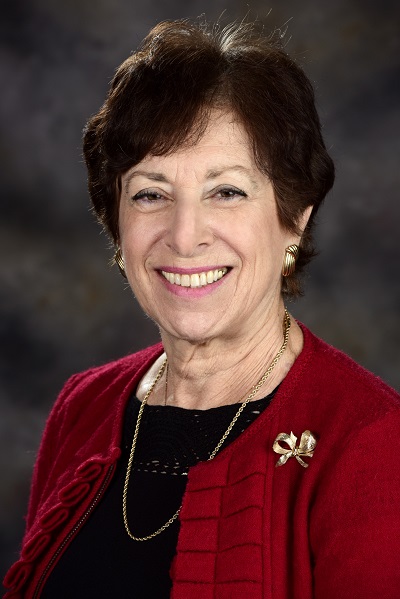
Start Date
End Date
Event Description
Title: The Perils of PFAS
Linda S. Birnbaum, Ph.D.
Scientist Emeritus and Former Director, NIEHS and NTP and Scholar in Residence, Duke University
PFAS compose thousands of compounds which persist in the environment forever and “new” PFAS are found all the time. A diverse group of chemical compounds, PFAS are used for industrial and consumer products, being found in pots and pans, clothing, food paper packaging, and firefighting foams (AFFF) leading to water, soil, dust, and air contamination. Essentially all Americans are exposed, with blood levels reflecting water and food contamination. PFAS-related health concerns began in the 1960s, and the study of people contaminated by DuPont living in the vicinity of Parkersburg, WV revealed strong associations with cancer, high blood pressure, high cholesterol, thyroid impacts, and ulcerative colitis, among other health effects. Other studies, both human and animal, have shown immunotoxicity, diabetes, and impacts on development of the fetus and infant. Thus, PFAS are multi-system toxicants at all stages of life. The “long chain” PFOA and PFOS are being replacement with related “short chain” alternatives which are just as environmentally persistent even if they are eliminated more rapidly from biota but are harder to remove from water. While only a limited number of the newer “short chain” PFAS have been tested, all have shown essentially the same effects as the legacy long chain compounds. Many scientists are suggesting that PFAS be regulated as a class. Federal regulations are limited, with EPA only issuing a lifetime health advisory for PFOS and PFOA, and FDA has regulated a limited number in food packaging. Congress has legislated that the Department of Defense and domestic airports stop using PFAS-contained AFFF. States are moving ahead with 11 states considering a ban on PFAS in food packaging, 27 states considering policies focusing on PFAS in multiple media, including 7 states which have established regulatory levels of PFAS in drinking water. Wisconsin, which has over 30 known PFAS contamination sites, released a PFAS Action Plan last December, and is leading a 22-state coalition pushing for federal drinking water standards. International action is building to take action on PFAS, with the EU chemical strategy towards a toxic-free environment calling for a ban and development of innovations to provide safe substitutions for PFAS.
About the Speaker: Linda Birnbaum (former director of NIEHS and the NTP, currently a Scientist Emeritus)
Linda S. Birnbaum, Ph.D., D.A.B.T., A.T.S. is the former Director of the National Institute of Environmental Health Sciences (NIEHS) of the National Institutes of Health, and the National Toxicology Program (NTP). After retirement, she was granted scientist emeritus status and still maintains a laboratory. As a board-certified toxicologist, Birnbaum served as a federal scientist for 40 years. Prior to her appointment as NIEHS and NTP Director in 2009, she spent 19 years at the U.S. Environmental Protection Agency (EPA), where she directed the largest division focusing on environmental health research.
Birnbaum has received many awards and recognitions. In 2016, she was awarded the North Carolina Award in Science. She was elected to the Institute of Medicine of the National Academies, one of the highest honors in the fields of medicine and health. She was also elected to the Collegium Ramazzini, an independent, international academy comprised of internationally renowned experts in the fields of occupational and environmental health and received an honorary Doctor of Science from the University of Rochester and a Distinguished Alumna Award from the University of Illinois. She has also received Honorary Doctorates from Ben-Gurion University, Israel, and Amity University, India; the Surgeon General's Medallion 2014; and 14 Scientific and Technological Achievement Awards, which reflect the recommendations of EPA's external Science Advisory Board, for specific publications.
Birnbaum is an active member of the scientific community. She was vice president of the International Union of Toxicology, the umbrella organization for toxicology societies in more than 50 countries, and former president of the Society of Toxicology, the largest professional organization of toxicologists in the world. She is the author of more than 1000 peer-reviewed publications, book chapters, abstracts, and reports. Birnbaum's own research focuses on the pharmacokinetic behavior of environmental chemicals, mechanisms of action of toxicants including endocrine disruption, and linking of real-world exposures to health effects. She is an adjunct professor in the Gillings School of Global Public Health, the Curriculum in Toxicology, and the Department of Environmental Sciences and Engineering at the University of North Carolina at Chapel Hill, as well as in the Integrated Toxicology and Environmental Health Program at Duke University where she is also a Scholar in Residence.
A native of New Jersey, Birnbaum received her M.S. and Ph.D. in microbiology from the University of Illinois at Urbana-Champaign
Watch the recording of Linda's presentation.
Featured Image
Featured Image
